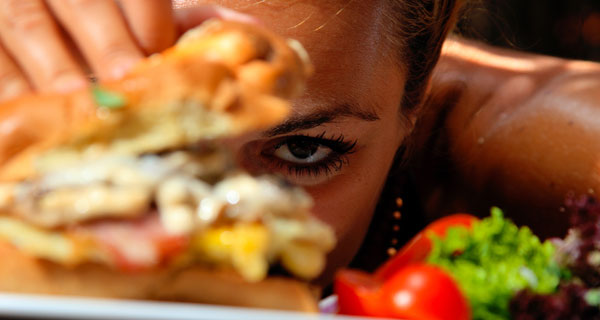Advertisement
Do You Know Exactly What You’re Eating?
Do you know exactly what you’re eating when you dine out? That’s no surprise since most restaurants don’t provide information on their menus that spells this out. Sure, you get a literary tour de force for each menu offering to tantalize the taste buds. But how do you know what kind of nutritional components you’re … Continued

Do you know exactly what you’re eating when you dine out? That’s no surprise since most restaurants don’t provide information on their menus that spells this out. Sure, you get a literary tour de force for each menu offering to tantalize the taste buds. But how do you know what kind of nutritional components you’re ingesting?
Some provide menu clues
Some restaurants provide clues on their menus—with a Heart Smart logo or similar emblem. And an astute reader will know that a Colossal Brownie Delight might put them over their calorie limit for the day. Even the most astute reader might not know, though, that a serving of Asian Chicken Salad packs well more than twice the recommended daily sodium intake.
Some list nutritional information on their websites
Some restaurants even list nutritional breakdowns for fast food offerings on their websites, though these aren’t always complete or up to date. Some also provide nutritional information brochures to customers who ask, though these are often kept behind the counter. But most people don’t actively seek out nutritional information about the food they’re about to order.
New report calls for government-mandated labelling
Now the Centre for Science in the Public Interest (CSPI) has published a 91-page report called Writing on the Wall: Time to Put Nutrition Information on Restaurant Menus. The report makes a convincing case for government-mandated menu labelling that includes nutritional information such as calories and sodium.
The report cites several health-related statistics to bolster their argument:
- 48,000 Canadians die of nutritional-related heart disease, stroke, diabetes, and cancers each year
- $7 billion is the conservative estimate of the cost to the Canadian economy of these illnesses
- 2/3 of Canadians are overweight or obese
- 90% is the lifetime risk of having hypertension
- $60 billion worth of food is sold annually at Canadian restaurants
Recommended daily intakes
- Calories = 2,000 per day for adults
- Sodium = 1,500 mg per day for someone aged 9 to 50
Scary reading
In the CSPI report are appendices that list the two lowest-calorie and highest-calorie and two lowest-sodium and highest-sodium menu items in 14 common food categories served at 33 large chain restaurants across Canada.
You’ll find some scary reading in these lists. Some examples:
|
1,460 calories |
|
1,800 calories |
|
2,678 calories |
|
1,960 mg sodium |
|
3,220 mg sodium |
|
4,380 mg sodium |
If you like Shoeless Joe’s and their Signature Ribs, you’re definitely in trouble: one order packs a mean 2,486 calories and 4,599 mg of sodium! Would you like fries with that?





